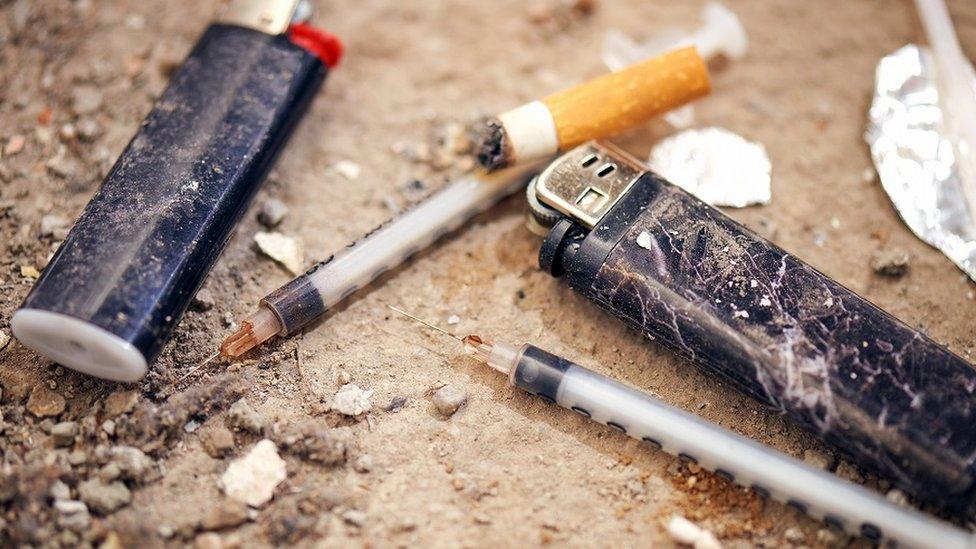Middlesbrough and Hartlepool teams target overdose survivors
- Published
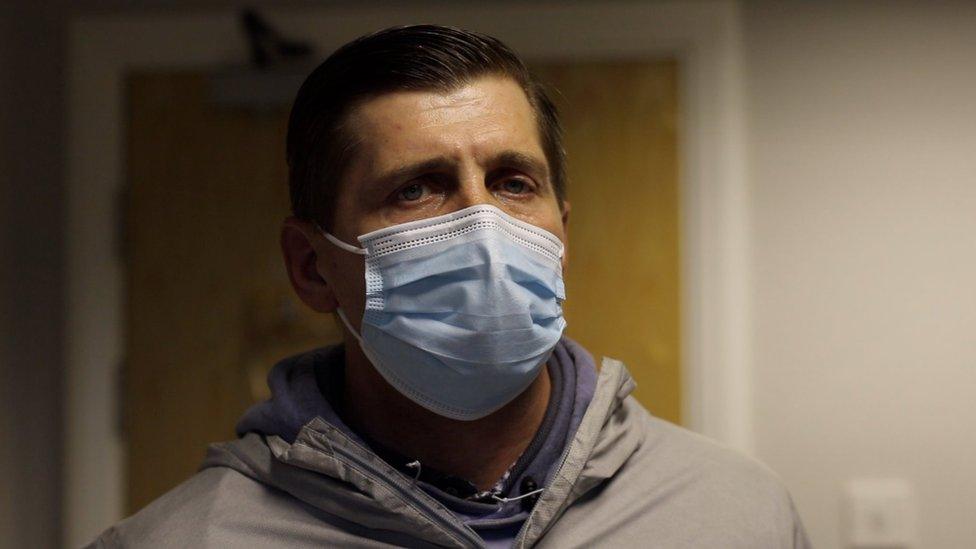
Recovering addict Richard Lauro says he has lost countless friends to drugs
With drug-related deaths on Teesside at their highest since records began in 1993, specialist teams have been set up to provide rapid support for people who have had a near-fatal overdose. The BBC has been speaking to a survivor to see what difference such a service makes.
The pictures on the café wall serve as a constant reminder of the friends Richard Lauro has lost.
Each of the faces staring down is that of someone who died after a struggle with drugs, and the memorial wall at the Middlesbrough café frequented by Richard and his friends is alarmingly full.
"We're thinking we need to start on another wall now," the 47-year-old says.
His picture could easily have been hanging there too.
'Prepare for worst'
"I got really lucky and got the right treatment at the right point in my life," says Richard, who is a recovering drug addict.
"I'd run out of options and I felt doomed.
"I overdosed on tablets. This is how people die. You get so high that you're irresponsible, you think you're fine but then you're vomiting in your sleep and you can't clear your throat.
"My family did give up hope.
"The best they could have wished for was not to get bad news. They worried. I'd been in hospital quite a lot, doctors were telling them to prepare for the worst. I was in twice one year, for nine weeks at a time.
"A lot of people I went to school with and grew up with have died."
'Crucial guidance'
The latest figures show deaths rose 40% in a year, and the swell of pictures on the café wall bears that out for Richard.
"It's dreadful, an eye-opener," he says.
"These people pass away and we mourn them and that's that, but I'm so pleased to hear there's a team for those that are still here and may have overdosed by accident.
"Just to give them guidance straight after is the crucial time to do that."
That Near Fatal Overdose team is being run by specialist GP practice Foundations, who say they are the first of their kind in England.
There are two branches, one in Middlesbrough funded by Project Adder, external and the other in Hartlepool, supported by a grant from the Office for Health Improvement and Disparities.
The teams receive referrals from outside organisations including hospitals, probation and hostels. They then attempt to track down the individual to provide advice and support.
Since the team was formed in August they have had more than 50 referrals.
Lisa Baker has spent nearly two decades in the sector and is one half of Middlesbrough's team.
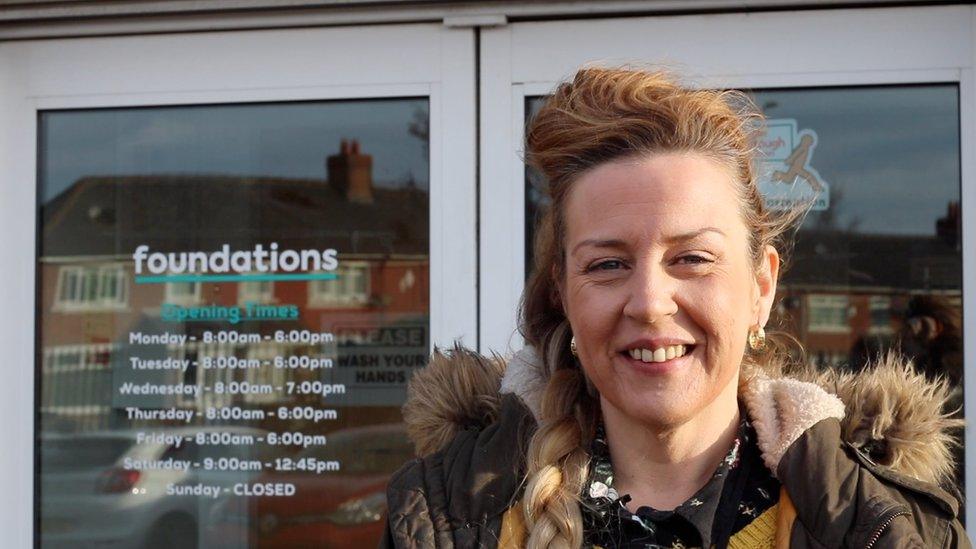
Lisa Baker is part of Middlesbrough's near-fatal overdose team
"We have a whole spectrum of reactions," she said.
"For some people, an overdose is normalised. They're using drugs to cope and they're desensitised to the situation and they don't take into consideration the danger of what they're doing.
"Then we get people who are really scared of the experience and want to move on.
"Some people say: 'I just wanted a night's sleep. I just wanted to block everything out. I didn't realise.'
"It's Russian roulette with your life - that one time, that one unintentional overdose could be fatal.
"At first we try to guide them to identify what they've done to themselves. It's hard hitting. It's not threatening, but it's direct."
The initiative is led by Daniel Ahmed, clinical lead at Foundations and lead of England's only heroin assisted treatment clinic.
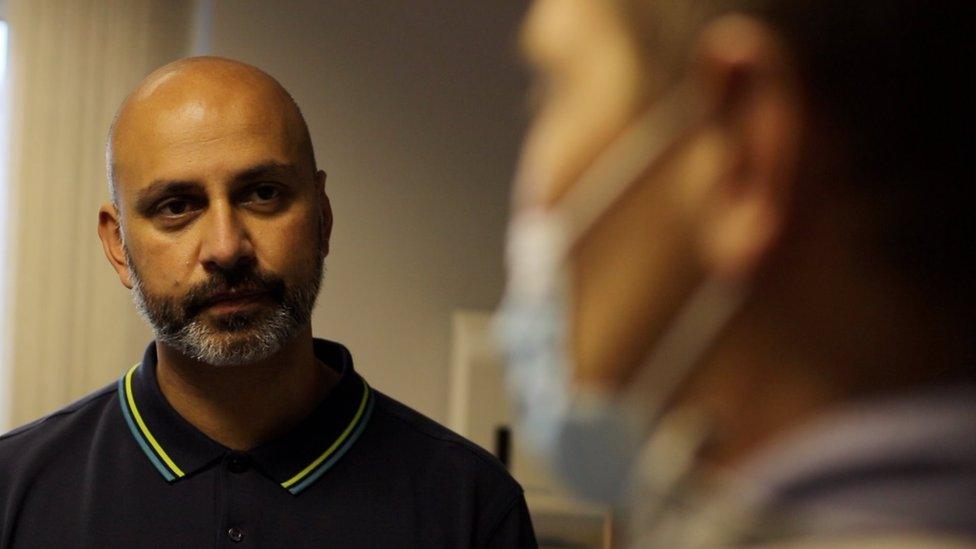
Danny Ahmed wants to prove the scheme can make an impact
He says his organisation has "the fluidity" to try new things and the backing of people who "support innovation".
"The team has been brought together as a direct response to the level of drug-related deaths in the area," he said. "We asked ourselves: 'How can we make a difference? How can we make this work?'
"We know many people may have repeated overdoses before they die and we want to intervene at an earlier point to first of all save their life and then build on that so they can live life in a different way.
"Our team will intervene within 24 hours, do an assessment and look at how we can provide harm-minimisation support.
"We have a key mantra - we meet people where they're at. If an individual isn't willing to come into treatment, we need to explore why that is. We'll work with them to accommodate their needs. It's absolutely key that there are no barriers for people to be involved with services that are out there.
"Middlesbrough and Hartlepool are the right places to start because of the levels of drug related harms.
"What we'd like to see is that we're able to evidence that it makes an impact. Early findings show that it does impact those at risk of death."
If you've been affected by the issues raised in this report, details of organisations offering information and support for addiction and feelings of despair are available via BBC Action Line.

Follow BBC North East & Cumbria on Twitter, external, Facebook, external and Instagram, external. Send your story ideas to northeastandcumbria@bbc.co.uk, external.
Related topics
- Published15 August 2021
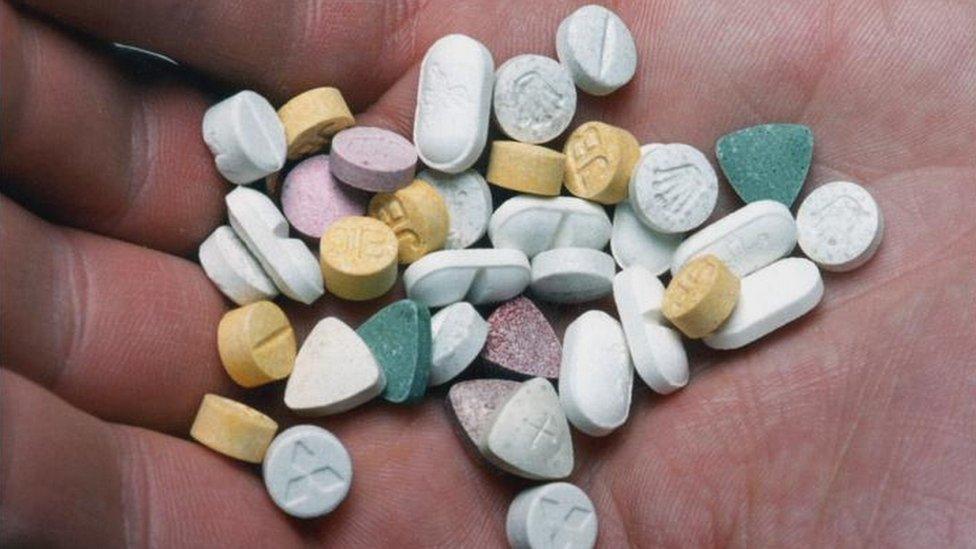
- Published24 February 2020
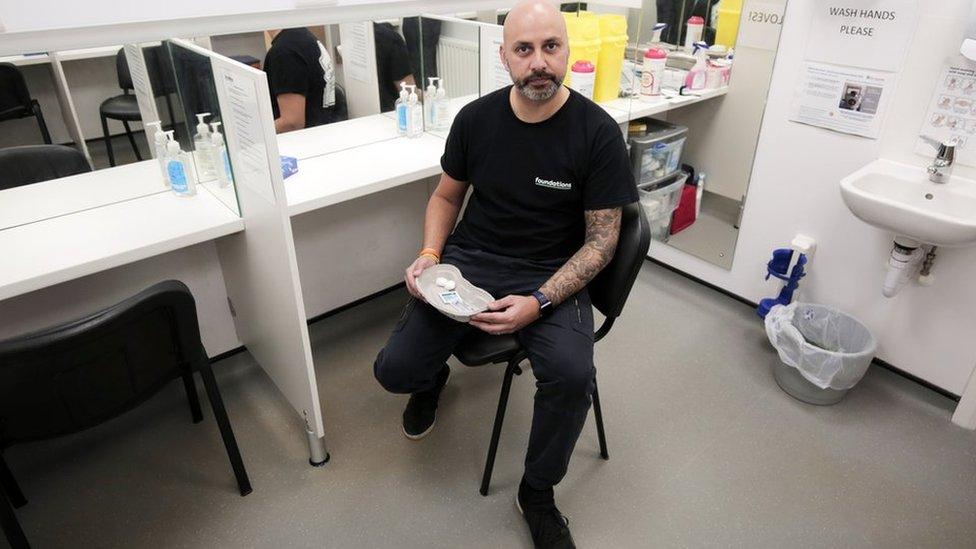
- Published9 October 2019
